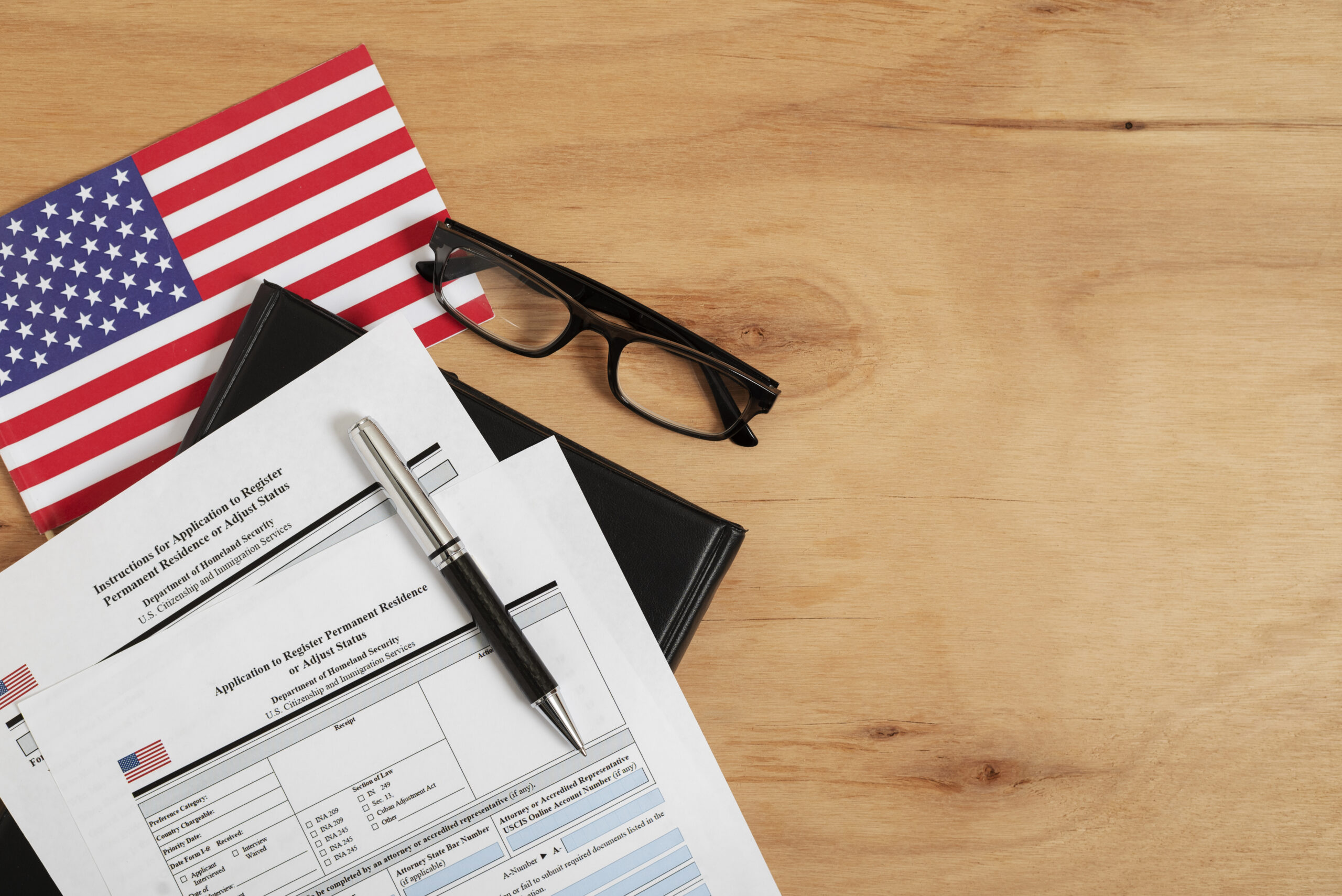Securing a U.S. Green Card is a major milestone for immigrants seeking permanent residency in the United States. While many believe that marrying a U.S. citizen is the fastest route, it’s not the only, or even always the best way. In fact, there are several powerful pathways to get a Green Card without marriage, and many of them are ideal for individuals who are career-driven, academically accomplished, humanitarian-focused, or well-positioned financially.
If you’re wondering how to get a Green Card in the U.S. without marriage, this guide walks you through employment-based visas, family relationships (excluding spouses), humanitarian options, diversity visas, and investment-based programs, all with practical advice to help you navigate your immigration journey confidently.
Employment-Based Green Cards: A Top Option for Skilled Professionals
One of the most common and legitimate ways to get a Green Card without marriage is through employment. The U.S. issues thousands of employment-based (EB) Green Cards each year, categorized by skill, education, and experience.
- EB-1 Visa: Extraordinary Ability, Researchers, and Executives
The EB-1 Green Card is reserved for individuals at the top of their field. You may qualify if you are:
- A person with extraordinary ability in sciences, arts, education, business, or athletics
- An outstanding professor or researcher with international recognition
- A multinational executive or manager transferred to a U.S. company
A major benefit of the EB-1A (extraordinary ability) category is that you can self-petition, meaning you don’t need a job offer or employer sponsorship.
- EB-2 Visa: Advanced Degree Holders and National Interest Waiver (NIW)
The EB-2 Green Card is designed for individuals who have an advanced degree (master’s or higher) or exceptional ability in their professional field.
- National Interest Waiver (NIW)
What sets the EB-2 NIW apart is that you don’t need a job offer or labor certification if you can prove your work is in the national interest of the U.S. This is particularly useful for entrepreneurs, researchers, public health experts, and tech innovators whose contributions benefit American society, economy, or security.
- EB-3 Visa: Skilled Workers and Professionals
If you’re a skilled worker with at least two years of experience or a bachelor’s degree, the EB-3 visa is another route to consider. This category does require a job offer from a U.S. employer and labor certification, but it remains a viable and widely used pathway for foreign workers across industries like healthcare, engineering, manufacturing, and IT.
Green Card Through U.S. Family Members (Excluding Spouses)
Family-based immigration isn’t only for spouses. You can still get a Green Card through other close relationships with U.S. citizens or permanent residents.
- Green Card Through U.S. Citizen Children
If your child is a U.S. citizen and 21 years or older, they can petition for you to become a permanent resident. This is one of the most direct ways for parents to immigrate, and there are no annual caps or waitlists in this category.
- Green Card Through Siblings
If you have a U.S. citizen sibling, they can petition for you as well. However, this category falls under the Family Fourth Preference (F4) and is subject to significant backlogs. Wait times often range from 10 to 15 years, depending on your country of origin. While this option isn’t fast, it’s valid and can be worth pursuing in parallel with other visa opportunities.
- Green Card for Children of Permanent Residents
If your parents are Green Card holders, they can file for you if you’re unmarried, whether you’re under or over the age of 21. Categories F2A (unmarried children under 21) and F2B (unmarried children 21 and over) both apply. Married children, however, are not eligible under this route until the parent becomes a U.S. citizen.
Humanitarian-Based Green Cards: Refugee or Asylee Status
If you’ve experienced persecution in your home country or fear returning due to race, religion, political opinion, nationality, or membership in a particular social group, you may qualify for refugee or asylee status.
Applying for a Green Card After Asylum or Refugee Status
Once you’ve been physically present in the United States for at least one year after being granted asylum or refugee status, you can apply for a Green Card using Form I-485. This process allows individuals to transition from protected status to permanent residency without needing marriage or employment.
It’s a pathway many people overlook, but it’s one that has protected thousands of lives—and continues to offer hope and safety to vulnerable populations.
The Diversity Visa (DV)
The Diversity Immigrant Visa Program, commonly called the DV Lottery, is one of the most accessible and popular ways to get a Green Card without marriage or a job offer.
How the DV Lottery Works
Each year, the U.S. government randomly selects 50,000 applicants from countries with historically low immigration rates to the United States. Entry is completely free, and selected individuals, along with eligible family members, are allowed to apply for Green Cards.
To be eligible, you must:
- Be from a qualifying country
- Have a high school education or two years of work experience in a qualifying occupation
Applications are submitted through the official DV Lottery website during a set registration period, usually between October and November. Watch out for fraud—you should never have to pay to enter the lottery, and the only valid application site is hosted by the U.S. Department of State.
EB-5 Immigrant Investor Program: Green Card Through Investment
If you have access to significant financial resources, the EB-5 visa offers a direct route to a Green Card through economic investment in the United States.
EB-5 Investment Requirements
To qualify, you must:
- Invest $800,000 to $1.05 million in a U.S. business
- Create at least 10 full-time jobs for U.S. workers
- Invest in either a targeted employment area (rural or high-unemployment) or a qualifying commercial enterprise
Many applicants use Regional Centers, which are government-approved programs that manage investment projects and job creation on your behalf. While the EB-5 program is complex and comes with financial risk, it remains a fast-track route to residency for those with the means.
Special Immigrant Green Card Categories
Apart from employment and family, there are several lesser-known but important immigration categories that allow individuals to gain a Green Card without marriage.
Green Card for Religious Workers
Individuals who have worked for at least two years in a religious vocation or occupation, such as priests, monks, imams, missionaries, or religious instructors, may apply under the Special Immigrant Religious Worker Program. A U.S.-based religious nonprofit organization must sponsor the applicant.
Green Card for Afghan Nationals
Special Immigrant Visas (SIVs) are available for Afghan nationals who worked with the U.S. government, armed forces, or allied programs in support roles. These applications are processed under special provisions with fewer restrictions than typical employment-based categories.
Special Immigrant Juvenile Status (SIJS)
If you’re an undocumented minor in the U.S. and have been declared dependent on a U.S. juvenile court due to abuse, abandonment, or neglect, you may be eligible for a Green Card through Special Immigrant Juvenile Status. This pathway does not require family sponsorship or marriage and provides critical protection for vulnerable youth.
Tips for Navigating the Green Card Process Without Marriage
Immigration is a life-altering decision, and it’s essential to make informed, strategic choices. Here are some practical tips:
- Avoid Immigration Scams
Never trust anyone promising guaranteed Green Cards or faster processing for a fee. Only work with licensed immigration attorneys or accredited representatives listed on the Department of Justice website.
- Track USCIS Processing Times
Use the USCIS Processing Time Tool to monitor the average wait time for your petition. It helps set realistic expectations and avoid frustration.
- Consider Filing Multiple Petitions
If eligible, file petitions under more than one category to increase your chances. For example, you might pursue an EB-2 NIW while also entering the DV Lottery.
- Prepare Documentation Carefully
Submit complete and accurate evidence, including educational credentials, proof of work experience, recommendation letters, and identification documents. Errors and omissions can cause major delays.
Conclusion: You Don’t Need to Marry to Get a Green Card
The U.S. immigration system offers a range of viable, lawful options for individuals who want to obtain permanent residency without marriage. From employment-based Green Cards like EB-1, EB-2 NIW, and EB-3, to family-based options through children or siblings, to humanitarian pathways, diversity lottery wins, and investments through EB-5, your American dream is within reach, on your own terms.
Every immigrant journey is unique, but one thing is clear: marriage is not a requirement. By identifying the route that aligns with your background, goals, and qualifications, you can take meaningful steps toward a secure and prosperous future in the United States, without tying the knot.


